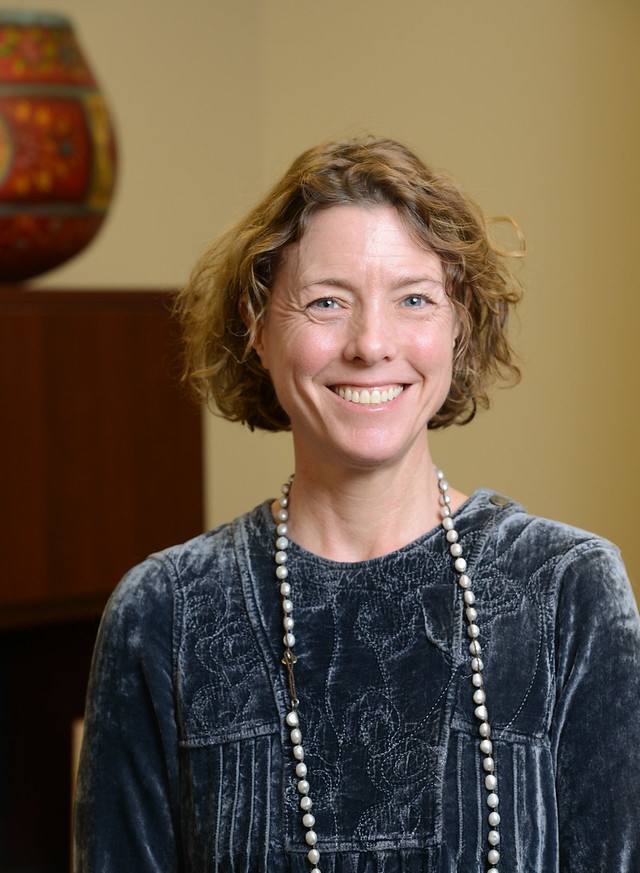Cynthia A. Curtis

Associate Professor, Practical Theology & Spiritual Formation
College of Liberal Arts & Social Sciences
B.A., University of Richmond, M.A.T., M.Div., Vanderbilt University, Th.D., Duke University
Location: Ayers 2004
615.460.6087ca.curtis@belmont.edu
Biography
I am a native to Nashville. I earned my B.A. from the University of Richmond, and immediately after college, I spent time in the Teton Mountains where I worked on a fly-fishing and horse ranch while I wondered what to do with my degree in the humanities besides enjoying the Great American Outdoors. I returned to Nashville where I completed an M.A.T. in English from Vanderbilt, and after teaching secondary school English for about five years, I realized my interests and questions were increasingly in the area of religion. I earned a M.Div. from Vanderbilt, and in 2007, I moved to Durham, North Carolina where I earned a doctorate in practical theology from Duke University.
While in graduate school, I enjoyed working as a hospital chaplain and participating in religion classes at both men’s and women’s prisons. Even as I was often consumed by rooting on Duke basketball, I managed to write my dissertation, an ethnography of the lived faith of homeless persons. My favorite part was simply listening to the stories and perspectives of homeless persons, who I found, witnessed to the presence and wisdom of God; they were my guides to answering a few questions such as how does homelessness impact a person’s religious practices, what constitutes their sacred space, and how do they experience God in embodied and material ways even in their extreme poverty. Thus far, I have presented my dissertation material at academic conferences, churches, and the pastoral care training program of a hospital. My research interests include ethnography and theology, Christian spirituality, material religion, pedagogy, and student formation and vocation.
At Belmont I have taught General Education courses on the bible and World Spiritualities, First Year Seminars, and Junior Cornerstones. I also teach a Vocation class for Religion majors where students explore questions of identity and calling in light of their faith. In my bible classes, I try to get my students to feel comfortable asking questions of the text, to think about how it has been interpreted in different ways over time, and to see how it is relevant to and impacting their lives and world today.
